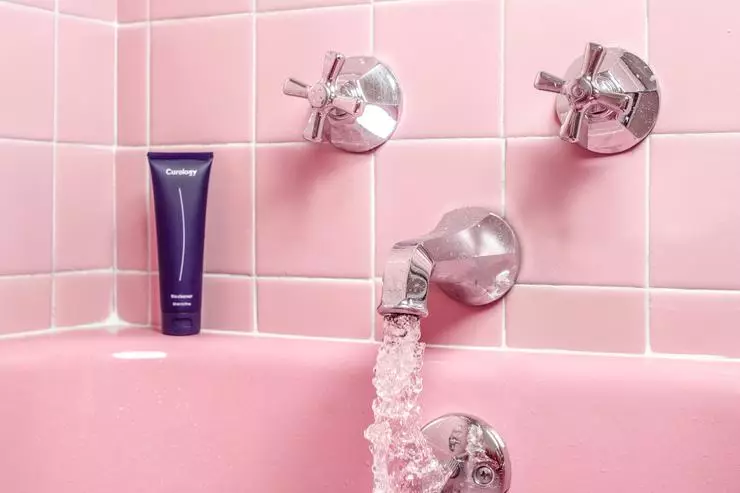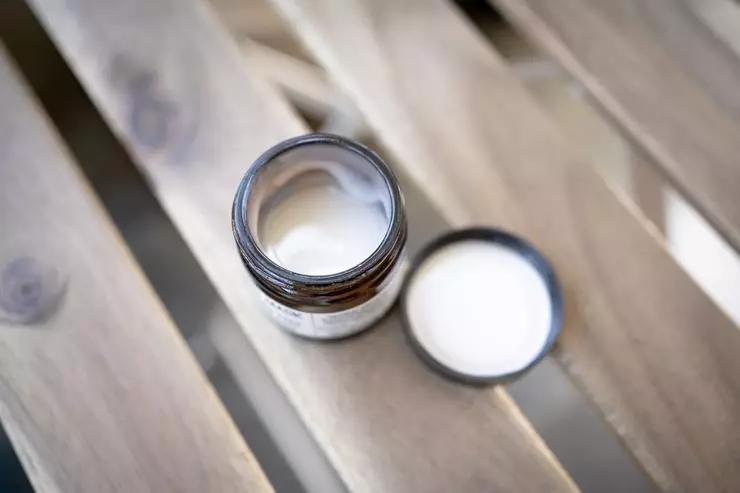Dry skin is often a temporary or seasonal problem with which you encounter, for example, in winter or in summer, but the problem can stay with you even for life. Although most often the skin is dry on hand, elbows, legs, and belly sides, places where these dry stains are formed, can vary from one person to another.
How does skin dryness manifest
Signs of dryness will depend on your age, health status, livestock, the number of time you spend on the street and the specific reason for your problem. With dry skin, these manifestations are usually associated:
Feeling of skin tightness, especially after shower, swimming or swimming
Leather that looks wrinkled
Leather that becomes coarse
Itching can sometimes be strong
From lung to strong skin peeling
Thin lines or cracks on the skin
Redness

Do not take shower more than 5-10 minutes
Xerosis - Scientific name of dry skin
Dry skin often has a biological cause. Some diseases can also significantly affect your skin. Possible causes of dry skin:
Weather. In winter, when the temperature and humidity fall sharply, the skin usually happens the most dry. But the season may not have a great value if you live in the desert regions.
Heat. Central heating, wood ovens, heaters and fireplaces reduce humidity in the room, due to which moisture quickly evaporates from the skin.
Hot baths and showers. The adoption of a hot soul or bath for a long time can dry the skin. The same can be said about frequent swimming, especially in highly chlorinated pools.
Hard soap and detergents. Many popular soaps, detergents and shampoos suck out skin moisture, as they are created to remove oil.
Other skin diseases. People with skin diseases such as atopic dermatitis (eczema) or psoriasis are prone to dry skin.
How to return the skin a healthy look
Moisturize. Moisturizing agents are tightly adjacent to the skin and create a thin air-drone film on the surface, through which moisture from the skin evaporates slowly. Apply a moisturizing cream several times a day and after bathing. It is best for more dense humidifiers - such can be found in a pharmacy. You can also use cosmetics containing moisturizers. If your skin is very dry, apply oil while it is still wet after the shower. The oil has more resistance than humidifiers, and prevents evaporation of water from the surface. Another option is ointments containing vaseline. They may seem fat, so it is worth using them only for the night.

Moisturize the skin with a rich composition
Use warm water and limit the swimming time. Long-term shower or bath and hot water remove fat from leather. Limit the reception time of the bath or soul is 5-10 minutes and use warm, not hot water.
Avoid hard soap. It is best to use gels for a shower with the addition of moisturizing agents or delicate foaming agents like oil or mousse for the shower. Avoid aggressive deodorants and antibacterial detergents, fragrances and alcohol.
Wear rubber gloves. If you need to immerse your hands in the water or you use aggressive detergents, gloves can protect your skin.
Use the air humidifier. Hot, dry air indoors can burn sensitive skin and strengthen itching and peeling. Portable homemade air humidifier will add moisture. Make sure that the humidifier is clean to prevent bacteria and fungi accumulation.
Cover the skin from frost. Winter can especially dry the skin, so do not forget to wear a scarf, a hat and gloves when you go out. Choose fabrics, pleasant to your skin. Natural fibers, such as cotton and silk, allow the skin to breathe. But wool, though natural, can cause irritation even on normal skin.
Erase clothes with detergents without dyes and fragrances, which can cause skin irritation. If dry skin after the folded thing causes itching, apply cool compresses to this place. To reduce inflammation, use a non-cerebral cream or hydrocortisone ointment containing at least 1% substance. If these measures do not reduce your symptoms or if they deteriorate, contact a dermatologist.
